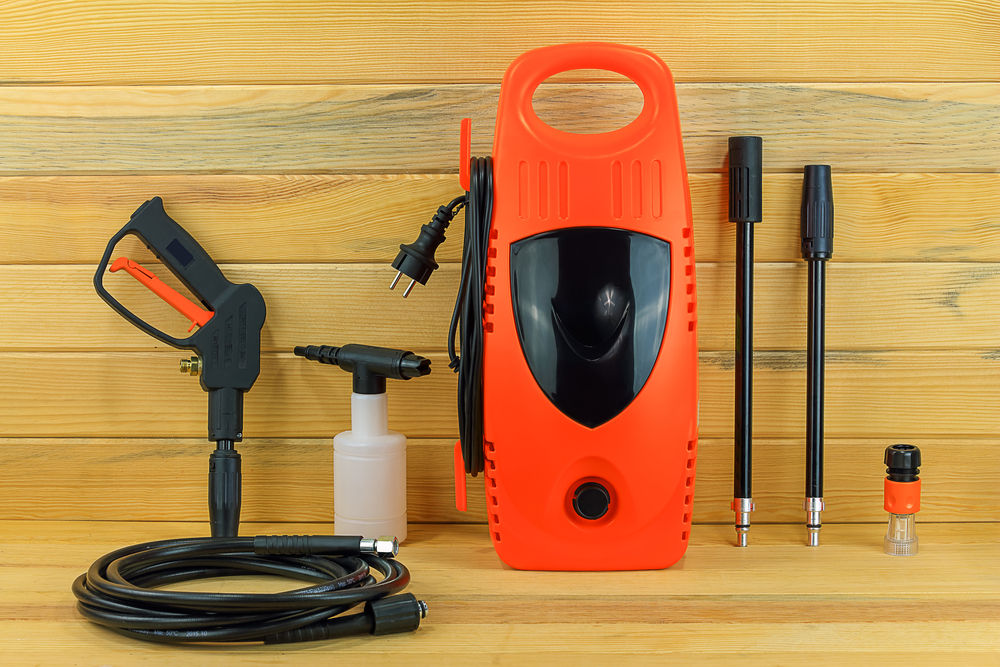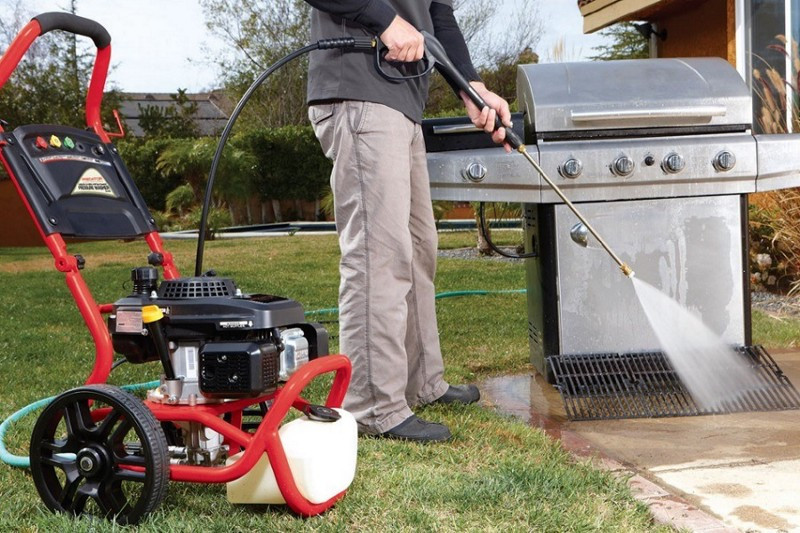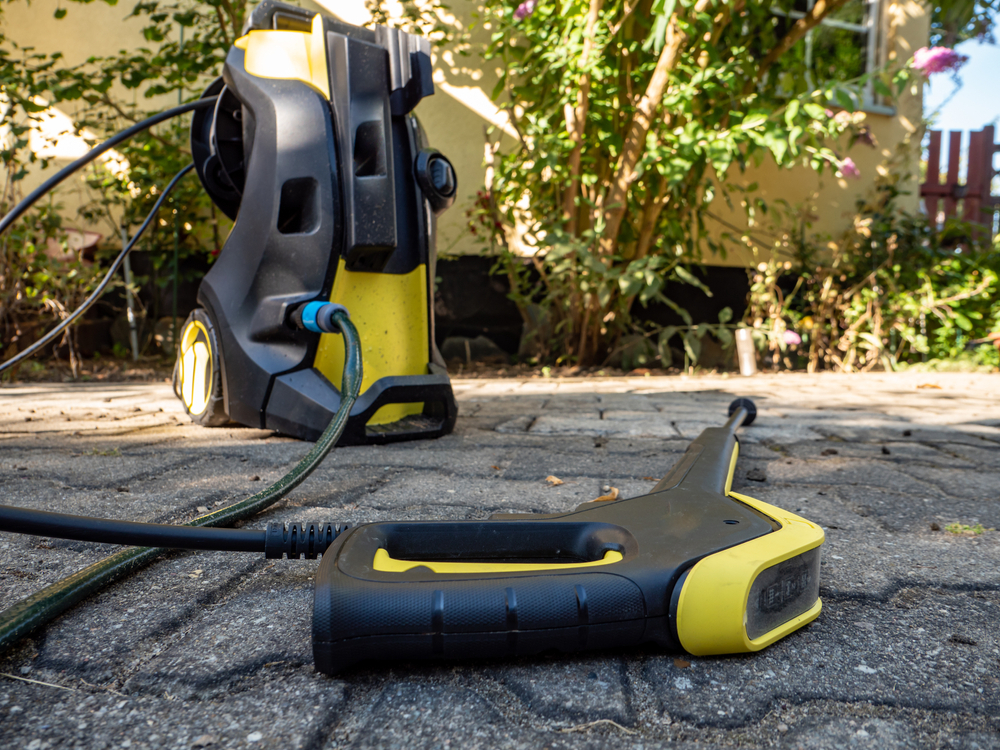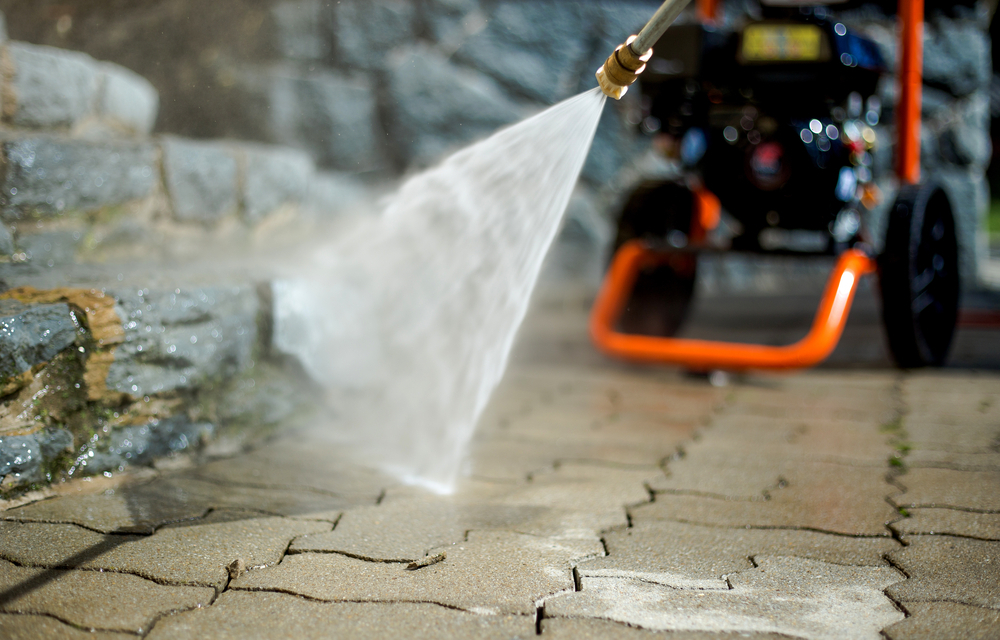Gas vs. Electric Pressure Washer
To decide whether you need a gas or an electric pressure washer, you have to select whether to purchase a gas or electric model. Engine-powered gasoline or diesel-powered pressure washers operate a pump using an engine, whereas an electric-powered pressure washer uses a motor to drive the pump. Cold or hot water pressure washers use either an engine or a motor.
You can wash concrete, asphalt, siding, decks, lawn furniture, garbage cans, boats and trailers, and outdoor power equipment using a pressure washer. Pressure washers give you the feeling that you’ll never be able to do any maintenance work without them. We tested 10 readily available pressure washers to get their pressure cleaning results. To select the best electric or gas pressure washer, utilize this guide.
You choose which type of pressure washer will depend on your business’ needs, as each has its benefits. This article provides information on comparing gas and electric pressure washers to make an informed decision.
Applied pressure washers We’re seeing an increase in pressure washers that offer professional cleaning at a do-it-yourself price, allowing pressure washers to be purchased more frequently in your local home center. Lower costs and lower upkeep are the main reasons why approximately 60% of consumers go with an electric pressure washer. However, gas-powered models have twice the cleaning power, and as a result, they can only be seen in big-box stores where most pressure washers are sold.

Water pressure from your garden hose can be boosted up to 60 times using pressure washers that use a gas engine, pump, and nozzle for concentration. Cleaning chairs, siding, and other items with a hose are easier because you can blast away mildew, driveway stains, and other grunge with a hose. A typical home can own its equipment at the low cost of $90 for electric machines and $300 for gas rather than pay from $50 to $90 per day to rent it.
Read Also: 12 Best Pressure Washers Under $600.
Gas Pressure Washers
Gas-powered pressure washers are well-suited for projects where you need a wet sandblaster, a water broom, or a mechanical sweeper. You can clean your second-story siding and gutters without using a ladder if you buy an extension wand and a gutter cleaner, such as the General Pump Giraffe.
The best option is a gas power washer for cleaning large surfaces quickly, such as decks, siding, and driveways, while also removing gum, sap, and other tough stains. For example, gas models clean a grimy concrete patio three times faster than the fastest electrics because they produce 2,000 to 2,800 psi of water pressure (as opposed to only 1,000 to 1,800 psi for electrics).

Despite the added noise and weight, the downsides include the requirement for pull starting, fuel mixing, and adjustments. In addition, in areas where the temperature drops below freezing, all pumps should be winterized with antifreeze to avoid the possibility of frozen gas tanks. Finally, additional caution and control are required to prevent injury and damage to wood and other soft surfaces when using gas models. The price ranges from $200 to $500.
Electric Pressure Washers
Electric Pressure Washers usually do lighter-duty jobs that emphasize cleaning over stain removal is perfect for small decks, patio furniture, and so on. They are lightweight and quiet and require minimal effort on your part. They also produce no exhaust emissions. In addition, they are triggered and small enough to be stored indoors in the winter without needing to be winterized.
On the other hand, less pressure results in slower cleaning. Less sturdy plastic, not metal, is used in wands and nozzles. It would help if you also had an outlet nearby. The price ranges from $90 to $180.

If you’re going to separate your liquids for other purposes, you don’t have to use a separate soap tank. Having a tool and cord storage as well as wheels for heavier models is an excellent addition. Adjustable nozzles are more convenient, as we can reconfigure them simply by twisting the nozzle. Spray angles can be customized using replaceable nozzles.
Although any pressure washer can handle decks, walks, and other standard cleaning tasks, most pressure washers are best for cleaning sidewalks, walkways, and other walkway surfaces. Additionally, they are strong enough to damage the paint on a vehicle, which is why we recommend using a hose when washing a car.
Features Wise Difference Between Electric and Gas Power Washer
Price
Initial costs for electric washers may be lower than those for gas washers, but that is because these units are lightweight and designed for occasional use. More cleaning power, high-quality (replaceable) parts, and significantly longer life is available when you invest in a gas pressure washer.
Capacity and Power
Gas pressure washer wands can outperform electric units in every area. Buying the correct power washer can save both time and aggravation. The higher PSI on gas-powered washers is important because these types of washers are typically used to clean stubborn stains, such as grease and oil stains on the driveway or sidewalk. PSI determines whether your surfaces have been “rinsed” or “washed.”
Water and Electricity Danger
Outdoor cleaning can be made simple with gas units, which do not need extension cords to restrict movement. Cordless allows you to work without fear of electric shock and will enable you to work in places where you can’t reach a power outlet.
Accessories
Gas machines feature a wide range of additional accessories to help accomplish different tasks. I keep my grimy, large driveways as clean as possible by using various cleaning products and tips. Bases with longer and sturdier wands will help you clean your second story with ease. So you don’t have to be concerned about corner access; longer hoses are now available as well. Using a gas unit, you have a tool for each job.
Durability
You will quickly identify additional costs that aren’t apparent at first because of this demand, which means that you and your money will have to work harder over time. While it is certainly possible to have a water-powered pressure washer, a gas-powered machine offers much more versatility and durability. Replacement and interchangeability of engine components are features of gasoline-powered models. Gas-powered investments can last for years and years if they are taken care of.
Frequently Ask Questions
Which Is the Best Type of Pressure washer?
Gas-powered pressure washers are typically used as an afterthought. They might have it serviced once a year, but they do extensive cleaning with it regularly. An electric pressure washer can be purchased and used frequently, as they are a simple tool to work with. There is no good reason to go with electric pressure washers instead of gas pressure washers with this finding. When it comes to cleaning, deciding how much you want to spend can be tricky. For giant jobs that require high pressure and the best cleaning power, gas-powered machines are an inexpensive investment. They vary in price depending on your needs but even when investing in medium-priced models for residential use; clean-up fees will seem insignificant compared.
Gas pressure washers v electric pressure washers: which one is better?
Electric power washers are just the right for light-duty use. If you need something for larger jobs or for jobs that need to be completed with a lot of depth, however, you should choose a gas pressure washer with the capability of delivering this level of performance. An electric model can remove light stains and dirt from concrete, but it is difficult to remove heavier stains entirely.
As for electric pressure washers, why pick one?
With various nozzle options, electric pressure washers come with pressure washers. The single nozzle makes soapy water, and several others disperse it into varying spray widths and patterns. Additionally, some of the more popular models also have cleaning brush attachments. On the other hand, due to the lower power output of electric models, the risk of damaging vehicle paintwork or other sensitive surfaces is low. As a result, pressure washers in the $130-$230 price range fall under the category of electric pressure washers.
Should you need to buy a gas pressure washer?
It has considerably more cleaning power than an electric pressure washer, but it is much bigger, heavier, and noisier. Most modern motors are quieter and easier to start than their predecessors. The number of states that have joined the CARB (California Air Resources Board) to cut down on pollution has significantly increased. As a result, it is important to make sure the gas emission levels are correct. 4-stroke engines are commonly used with gas pressure washers. But not all gas pressure washers are like this.
What does Cleaning Power represent?
Pressure washers have two ratings that reflect their cleaning ability: psi (pounds per square inch) and gallons per minute (gpm). A Pressure washer with a lower rating can perform nearly all of the tasks that a machine with a higher rating can. A Pressure washer with a higher rating, on the other hand, will clean much more quickly. While more pressure cleans faster, don’t let slight differences in psi dictate which machine you choose based on pressure washer evaluations.

Conclusion
Deciding between a gas and electric pressure washer can be difficult, especially when there are so many options available. But, thanks to the expert advice from the Cleanup Expert, you’ve found your answer.
Despite receiving 2 out of 2 possible points, the clear winner of this comparison is the gasoline-powered pressure washer. On the other hand, though, electric-powered models have their purpose. So if you are focused on making things as convenient and practical as possible, you go for an electric model. However, gas-powered units are especially well-suited for fast, effective cleaning and removal of tough stains.
- 10 Best Dehumidifiers in 2022 (Buying Guide) - August 2, 2022
- When Should I Switch Off My Dehumidifier? - October 16, 2021
- 8 Best Commercial Dehumidifiers in 2022 (Buying Guide) - October 5, 2021


